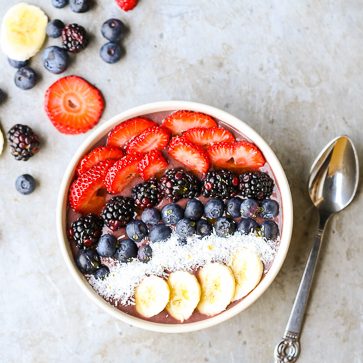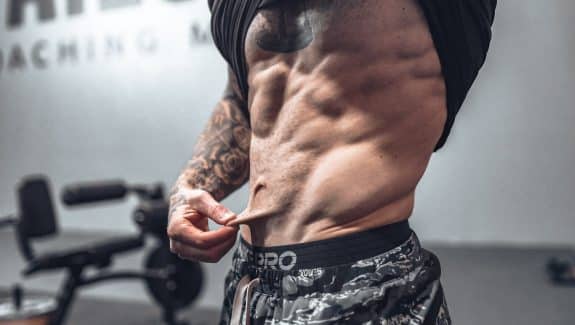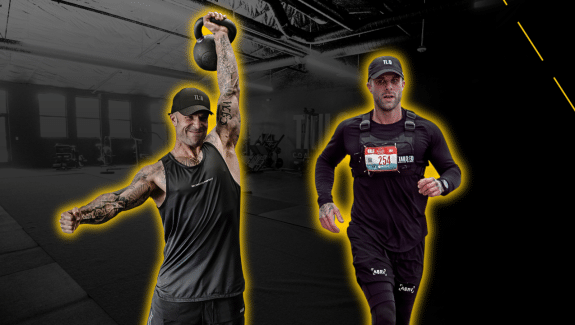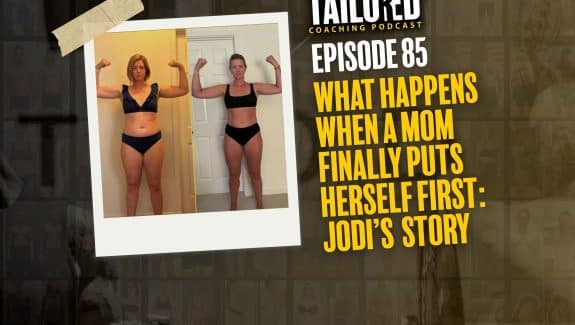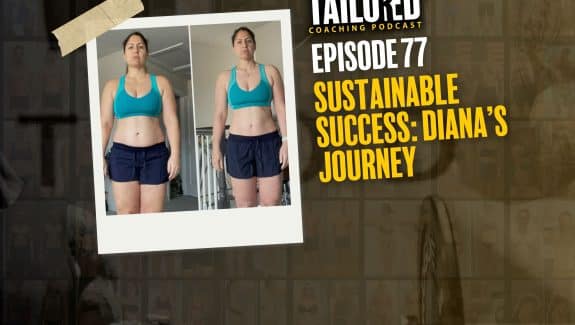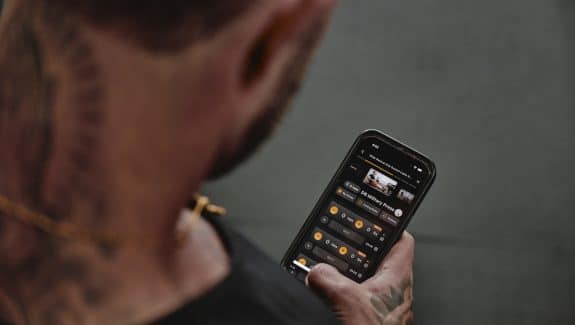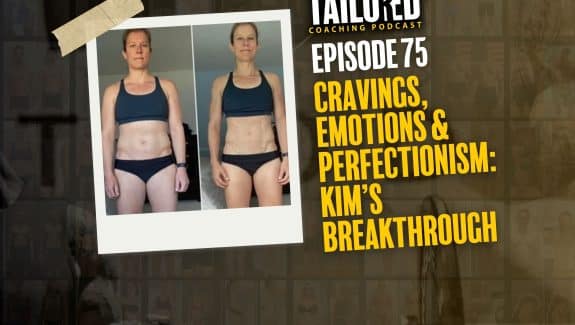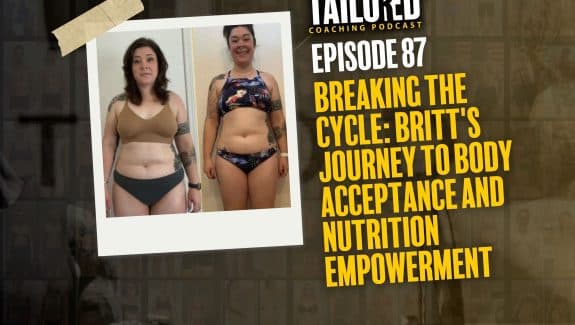What to eat, how much to eat, timing what you eat, and then actually seeing results – all without actually tracking your diet inside an app or reading a meal plan off of a piece of paper…. That’s the holy grail of nutrition, right?
It seems as if there is a bit of a battle going on right now, Team Intuitive Eaters vs. Team Macro Trackers.
The funny part about it is, neither will ever win. It’s literally a battle that is impossible to see one answer with or have one victor in.
Reason being, everyone is individual. I have clients who thrive on macros and others who thrive on intuitive eating and habit based principles.
Shit, I was a religious macro tracker. Why? Because it worked for me, I like numbers because I’m analytical by nature and I am a controlling human being (gift and a curse…) so it allowed me to have full control of how I would alter things to change the outcome my body saw.
But a few months ago, on a whim, I decided to throw in the towel, or the app, and go all based on how I feel – meaning how satiated I am, what macronutrients my body was actually craving, what times I wanted to eat and when I wanted to skip a meal, how my training was going, how my sleep was, and how my brain was functioning.
Now that may seem like a lot because it is, and the issue or reason it seems that way with most is because they’re not completely aware with their own body and mind. If you’re not fully aware, you cannot determine those types of things.
Lets be honest, if you ate according to how you feel you would probably eat a tub of Ben and Jerry’s every night or have Pizza for dinner most the week.
And that’s why I believe you cannot just jump right into intuitive eating, it takes experience with tracking, listening to your body, getting results, and ideally working with someone who can guide you through the process.
And once you can learn how to do all of the above, you can essentially learn how to Auto-Regulate Your Diet – Intuitive Eating, in other words.
9 Step System For Successful Intuitive Eating:
#1 – Track First
Whether you decide to commit to it for 12 weeks or 2 weeks, you need to track. One of the most powerful things about tracking your nutrition, on an app or even on a notepad, is the fact that you’re forced to truly see what you’re consuming.
Many people over consume calories without even knowing it. And even more people are consuming ingredients almost daily that could be causing issues with their body, yet without tracking it they cannot learn what sits well and what doesn’t sit well with their body.
The other reason for tracking is to see how much food you need to lose weight, maintain bodyweight, or gain weight.
See if we’re aimlessly eating, it’s hard to determine what amount of daily food or calories are right for you. But if you track your diet, you can first see how many calories you’re consuming, then drop or raise calories to create a deficit or surplus, and then finally you can keep it there to get used to the amount of food you should be consuming.
*Final Note – Be leery with random calorie calculations you find online, they do not take hormones, current calorie consumption, metabolism, true activity level, and much more into play. If you need a baseline, Click Here to Apply For A Consultation to actually break down where you should start at, personally.
#2 – Take Notes
If you look in my training journal, you’ll see much more than just how much weight I’ve lifted on each exercise from week to week. You’ll see notes of how I’m feeling, from my joints to my energy to my fatigue level.
This is because if I’ve fasted 13 hours vs. 16 hours or switched up my main carb source this week, I want to know how I feel.
For example, I have no real serious problem with dairy. I’m not lactose intolerant and I can get buy with some dairy without feeling like I’m going to die or vomit.
But one thing many high level athletes do is cut out dairy because on a micro level, majority of people still suffer from some minor inflammation and also have a lower ability to take in oxygen – which can make high intensity work difficult.
So I took notes and compared a week where I was consuming my normal whey protein and cottage cheese, to the next week where I only consumed vegan protein and completely took out all other dairy.
What did I notice?
I noticed that my rest periods between sets didn’t need to be as long and my joints did feel slightly better, hard to tell but what I noticed was that my squat got deeper quicker whereas it usually takes me set after set to get my full depth.
What I also noticed and wasn’t expecting, was my digestion was better.
But see these things are so minor; most of us let them pass right by. If I wouldn’t have conducted a self study and took these notes I would have never known any of this and it’s a fact that using this to my advantage will allow me to get leaner and/or build more strength and muscle.
Does it mean you should cut out dairy, maybe and maybe not. But it does mean you should take notes.
#3 – Understand Why You Eat
The most successful athletes and bodybuilders all have a very real understanding of why they eat…. It’s their fuel. It’s fuel to perform, live and function.
The least successful may still know that this is true, but they will also still heavily rely on food as a comfort or way of reducing stress and cravings.
This doesn’t mean food shouldn’t be good or satisfy you, because I’m a huge believer in using as many herbs and spices as possible to make things taste great (I also am a sucker for my Italian girlfriend’s cooking).
This just means if you can put fuel first on the scale of importance, you will be able to sustain and adhere to a diet for much longer. The best way to do this is to utilize #2, because when you eat like shit… you’ll feel and perform like shit and making that connection will be the key to unlocking the door to nutrition adherence.
#4 – Have A Goal
I don’t think it’s necessary to constantly have a goal you’re striving for, because at times you should be doing this just to maintain and feel good – plus it can be stressful to be constantly dieting for some superficial reason, you should do this shit because it’s GOOD for you and allows you to live longer for you family.
But I do believe if you’re trying to start working towards intuitive eating and auto-regulating your diet, you need to truly have a reason or goal to be doing it. Whether it’s mentally to get away from tracking macros like an anal maniac or it’s because you want to maintain a lean physique, it gives you a purpose.
If you try intuitive eating without a purpose, reason, or goal in mind, you’ll end up “Intuitively Eating Ice Cream” all the time. Without a specific goal, it’s hard to really focus on what your body actually needs.
#5 – Sleep More
I know, nothing to do with diet. But hear me out.
When you’re not on a proper sleeping schedule, your circadian rhythm is really out of whack. Both lack of sleep and an off circadian rhythm, trigger cortisol and other stress hormones to be out of control.
All this leads to an issue with our hunger hormones, things like metabolism, ghrelin and leptin. This will essentially lead to a slower metabolism and more cravings, which both lead to more body fat.
Lets add 1 more thing, studies have shown that if we reduce stress then we have more control over our decisions and we have more self-discipline (which has been shown to literally take energy). This means that with more sleep, we’re more likely to adhere to our nutrition and training plan in the first place.
So all in all, sleep has A LOT to do with seeing your results. Not only from a recovery to performance standpoint, but to a stress and hormonal standpoint.
#6 – No More “Cheat Days”
As fun as it may sound to have a day where your diet is out the window, it is the worst possible thing that has happened to nutrition in years.
At one point we believed that it had a positive effect on leptin and ghrelin, the hunger hormones. We believed that it spiked both of these and the result of doing so speeds up the metabolism.
Well the issue with this theory, is that they did more studies and discovered it not to be true. They discovered that this positive effect on the hunger hormones actually only happens after a minimum of 2-3 days of over feeding and even then is small. You need a full diet break for a week to see real benefits (I wrote an entire article on this topic, HERE).
The only positive benefit is psychological, by giving yourself a break from dieting. Which to be honest is short lived because in typical scenarios, you feel like shit physically, mentally and emotionally the day after “cheating”.
If you have a “refeed day” you will get the benefit of replenishing glycogen stores enough to recover, fuel up and perform better the next day. But for that to work, you really just need to bring calories up to maintenance via carbohydrates and no real tasty “cheat meal” is just carbs, there’s plenty of fats.
So what’s the answer? Just cut them out. Every once in a way, have a free meal where you aren’t so strict and rigid on yourself. Shit, enjoy a nice beer with it too. But a complete day of it is over the top, will likely take you out of the deficit you had, and cause further damage down the road.
For this intuitive eating and auto-regulating of your diet to occur, you need to truly believe in fueling your body with the nutrients that it will thrive on.
#7 – Have A Reset Time Period
Having a reset period simply means eliminating the possibly harmful and inflammatory foods out of your diet. It’s not necessarily required for all because many of you may not have any immune diseases or issues, but it is still beneficial for anyone reading this.
Even if it just means removing your cheat days and only eating only whole foods for 21-30 days, it will build the habits needed and actually allow your body to reset a bit. After this short time period, you will be able to truly understand what it feels like to be in good health – inside and out.
Once you know how this feels, you’ll also know how it feels to NOT be healthy. So once you have any issues, you’re aware of them almost immediately and can learn how to adjust your diet in order to see results and feel better.
#8 – Treat Your Gut Like Gold
Your gut is known as “The Second Brain” and there’s a reason for it, it controls A LOT of what goes on in your body and that means it can very well dictate the results you see from your body as well.
So how do you treat it like gold? Well, first of all you need to follow #’s 1-7 because they will all help contribute to this greatly. (I wrote an entire article on the Gut, check it out HERE)
But there are a few other basic things you can do as well:
- Take a Probiotic
- Eat Til Satisfied, Not Til Full
- Practice Some Fasting (I wrote an Article Breaking it Down, Learn More HERE)
- 75-85% of Your Diet Should Be Plant Based
- Get Adequate Fiber
- Drink Enough Water
- Get Some Fermented Foods
#9 – Accountability
If Consistency is the King of Results, then Accountability is the Queen that holds it all together.
Even coaches have coaches, because Accountability is what keeps you in the game, on the right path, and focused on the end result – not too mention when you’re trying to learn, like we’re talking about here with intuitive eating, it helps to have an expert there to teach you.
When Result Based Systems have Structure and are accompanied by Accountability, the Results are Practically Guaranteed.
Click Here Now to Apply for The Coaching Program that is Literally Getting Results Around The World Due To The Coaching Systems, Individualized Structure, and Real Accountability Built In.

